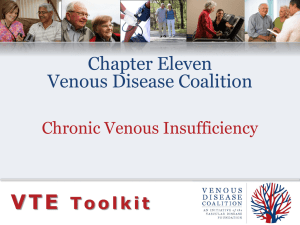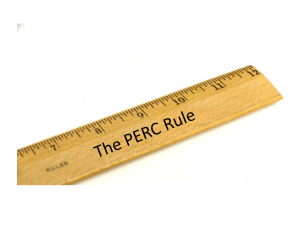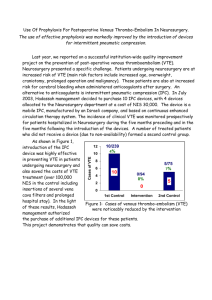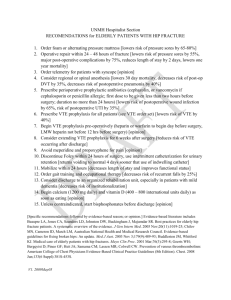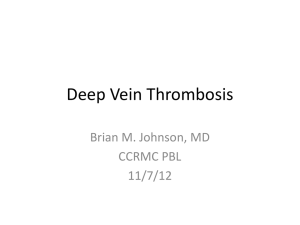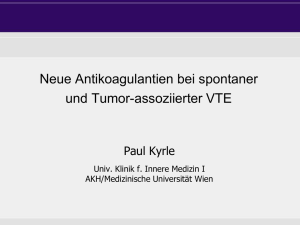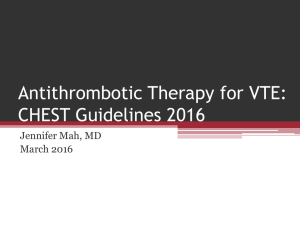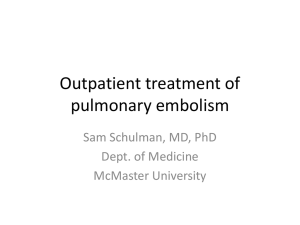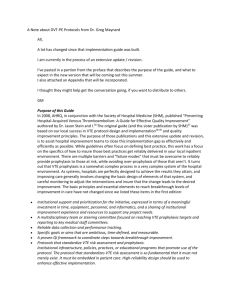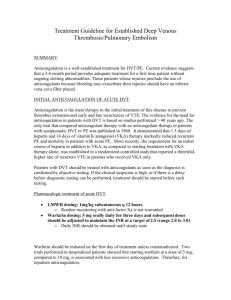9.11.09 Stewart DDimer to predict reoccurence of DVT
advertisement
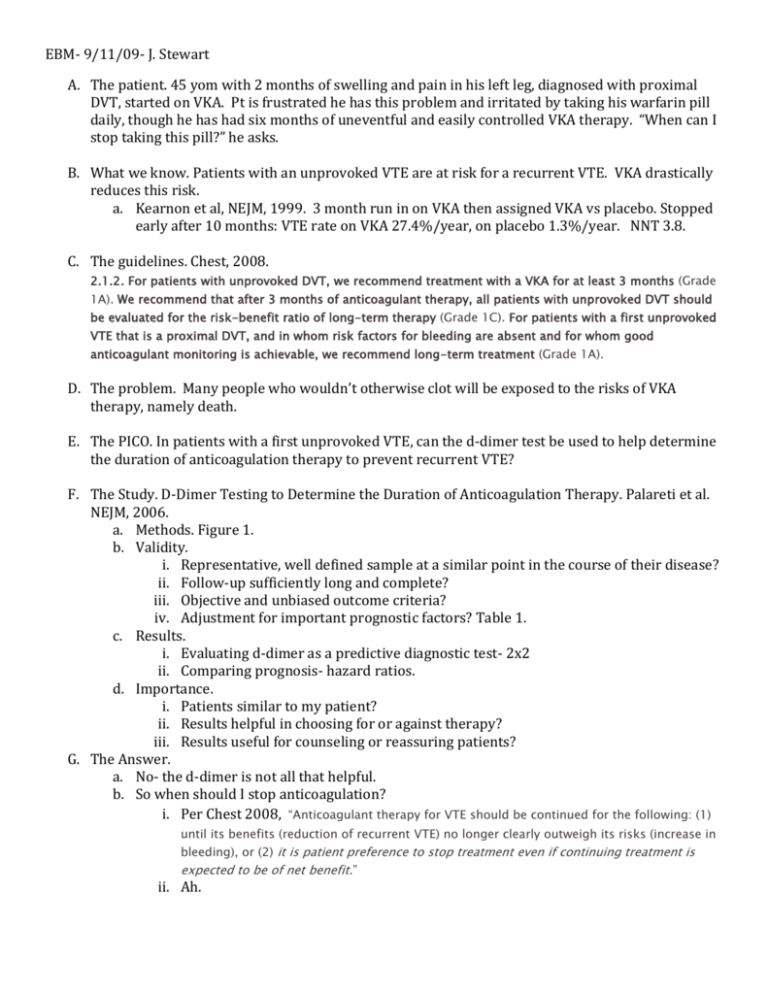
EBM- 9/11/09- J. Stewart A. The patient. 45 yom with 2 months of swelling and pain in his left leg, diagnosed with proximal DVT, started on VKA. Pt is frustrated he has this problem and irritated by taking his warfarin pill daily, though he has had six months of uneventful and easily controlled VKA therapy. “When can I stop taking this pill?” he asks. B. What we know. Patients with an unprovoked VTE are at risk for a recurrent VTE. VKA drastically reduces this risk. a. Kearnon et al, NEJM, 1999. 3 month run in on VKA then assigned VKA vs placebo. Stopped early after 10 months: VTE rate on VKA 27.4%/year, on placebo 1.3%/year. NNT 3.8. C. The guidelines. Chest, 2008. 2.1.2. For patients with unprovoked DVT, we recommend treatment with a VKA for at least 3 months (Grade 1A). We recommend that after 3 months of anticoagulant therapy, all patients with unprovoked DVT should be evaluated for the risk-benefit ratio of long-term therapy (Grade 1C). For patients with a first unprovoked VTE that is a proximal DVT, and in whom risk factors for bleeding are absent and for whom good anticoagulant monitoring is achievable, we recommend long-term treatment (Grade 1A). D. The problem. Many people who wouldn’t otherwise clot will be exposed to the risks of VKA therapy, namely death. E. The PICO. In patients with a first unprovoked VTE, can the d-dimer test be used to help determine the duration of anticoagulation therapy to prevent recurrent VTE? F. The Study. D-Dimer Testing to Determine the Duration of Anticoagulation Therapy. Palareti et al. NEJM, 2006. a. Methods. Figure 1. b. Validity. i. Representative, well defined sample at a similar point in the course of their disease? ii. Follow-up sufficiently long and complete? iii. Objective and unbiased outcome criteria? iv. Adjustment for important prognostic factors? Table 1. c. Results. i. Evaluating d-dimer as a predictive diagnostic test- 2x2 ii. Comparing prognosis- hazard ratios. d. Importance. i. Patients similar to my patient? ii. Results helpful in choosing for or against therapy? iii. Results useful for counseling or reassuring patients? G. The Answer. a. No- the d-dimer is not all that helpful. b. So when should I stop anticoagulation? i. Per Chest 2008, “Anticoagulant therapy for VTE should be continued for the following: (1) until its benefits (reduction of recurrent VTE) no longer clearly outweigh its risks (increase in bleeding), or (2) it is patient preference to stop treatment even if continuing treatment is expected to be of net benefit.” ii. Ah.

